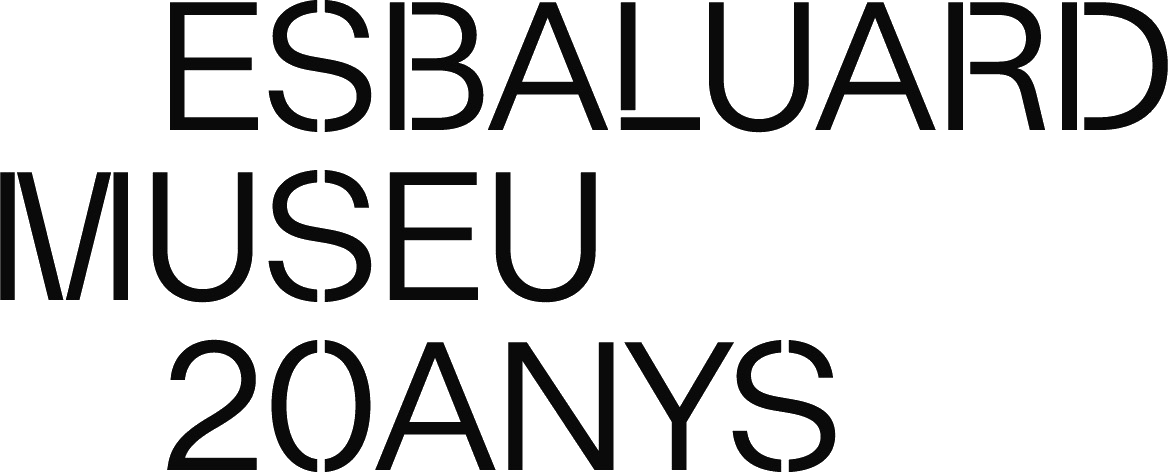
Es Baluard starts Africa. What is Africa? a procedural research project that is beginning to reflect on what we are talking about when we make it from Africa in the context of art to try to establish a cartography of African art.
In this sense, the past April 12, 2018, we proposed a second activity of dynamization integrated in this line of work, that was the presentation of Platform HARAKAT and KIBRIT, carried out by four of its members: Pau Cata, Ro Caminal, Marta Vallejo and Balbina Sardà. The projects will remain visible to the museum until May 27.
Platform HARAKAT is a project that, by adopting the term “movements” in Arabic, reflects on the contradictions inherent in the journey: movements occur despite and due to the paradox in which the journey is promoted, limited and imposed.
From a contextual and interdisciplinary approach, Platform HARAKAT proposes rethinking the mobility of knowledge, bodies and practices in the Mediterranean, Sahel and West African regions from a perspective as preposterous as contemporary.
To do this, Plataform HARAKAT proposes a selection of online resources distributed in four categories: knowledge, tools and actions. With the intention of establishing relationships between these resources and going beyond the archivist’s impetus, we also propose a series of curatorial dialogues, gathered under the heading cartographies.
The aim of the HARAKAT Platform is to reflect on the various approaches to travel, the legacy of their traditions and their impossibilities by putting in dialogue different concepts and practices derived from mobility and their shadows. Platform HARAKAT documents invisible stories and stories, underlining the links that shape these regions, offering a space for reflection and critical action.
KIBRIT (كبريت) is a collaborative research and production program dedicated to contemporary art and curatorial practices committed to the reactivation of cultural heritage and collective memory (architecture, natural heritage, sound archives, cinema, photography, education) .
KIBRIT proposes collaborative and interregional research, residences, artistic interventions, exhibitions, public programs, screenings and a web platform. Based on the involvement of all the members that make up the program and their respective communities, KIBRIT aims to promote sustainable synergies based on the exchange of practices and knowledge, generating reflections, research work and critical actions.
KIBRIT is a program initiated and curated by Le 18 (Marrakech), Atelier de l’Observatoire (Casablanca), Maison de l’Image (Tunisia), CeRCCa (Barcelona), Rhizome (Algeria), JISER (Barcelona / Tunisia) and ‘Ramallah Town Hall (Ramallah).
BIOGRAPHIES
Pau Catà is a cultural manager and researcher. He is currently studying Doctorate in Artistic Research at the University of Edinburgh thanks to the support of the OSIC, the ECA and the SGSAH. Between 2008 and 2010 he completed the Master’s Degree in Arts Management and Media Cultural Studies at the London South Bank University where he received the Course Director Price for Outstanding Achievement. Since 2010, Pau Cata has coordinated the CeRCCa Center for Research and Creation Casamarles, an artist’s residence located in Llorenç del Penedès. As a coordinator of CeRCCa, Pau Cata has commissioned numerous exhibitions and has developed different projects in Turkey, Slovenia, Egypt and Abkhazia thanks to the support of OSIC, EYE, ECF, Tandem, ALF and SouthMed CV. He is currently part of the KIBRIT collective and is the coordinator of the HARAKAT I Platform and the NACMM_North Africa Cultural Mobility Map).
Ro Caminal works from indiscipline, in a hybrid space between art and social sciences. Experience ways to register a social utility in artistic practice. Introduces its projects as audiovisual research, generating knowledge, which is then shared through the exhibition format. Ro Caminal holds a Degree in Fine Arts from the University of Barcelona (2012) and a Postgraduate in Social and Cultural Anthropology from the URV (2013). He has participated in numerous collective exhibitions such as Post-it City, Occasional Cities (CCCB), Breathing Time (Mas Esglésies), Bienal de Valls 2103 (Valls), Extralocals (Avic), What can we do? (Can Felipa), Resistance Policies (Fortuny Hall), Inverted Time (Can Felipa), Dilemma (Arts Santa Mònica), Great Angular (Fabra i Coats). Transmissions (Tinglado 2), Translocations (Arts Santa Mònica), Bienal de Valls 2015, International Biennial of Video of Puebla (Mexico), Intranational Biennial of video of Taiwan. TIVA, 2016, (Taiwan). He has exhibited solo shows in El Levante (Rosario, Argentina), New Zero Art Gallery (Yangon, Myanmar.), Artellewa Gallery (Cairo, Egypt). Galery Ethiopiques (Senegal) and the Sicart Gallery (Vilafranca del Penedés).
Marta Vallejo is a writer, politician and cultural manager. Combines the management of cultural projects with the artistic interventions and the political impact. He has lived in Dakar working for the AECID culture and development program and the Kër Thiossane multimedia art center. He has also been based in Alexandria, where he has developed several artistic research projects on the collective construction of spaces for resistance and creation. As a member of the group, La Companyia has cured multiple projects focusing on the processes of collective creation and the meanings of the common fact. As a writer, she regularly collaborates with the magazine Nativa and as an artist she explores the potential of the word and the sound to open and contain experiences of memory, imagination and modulation of identities in times of crisis.
The Platform HARAKAT team is also formed by Francesca Masoero and Balbina Sardà.







